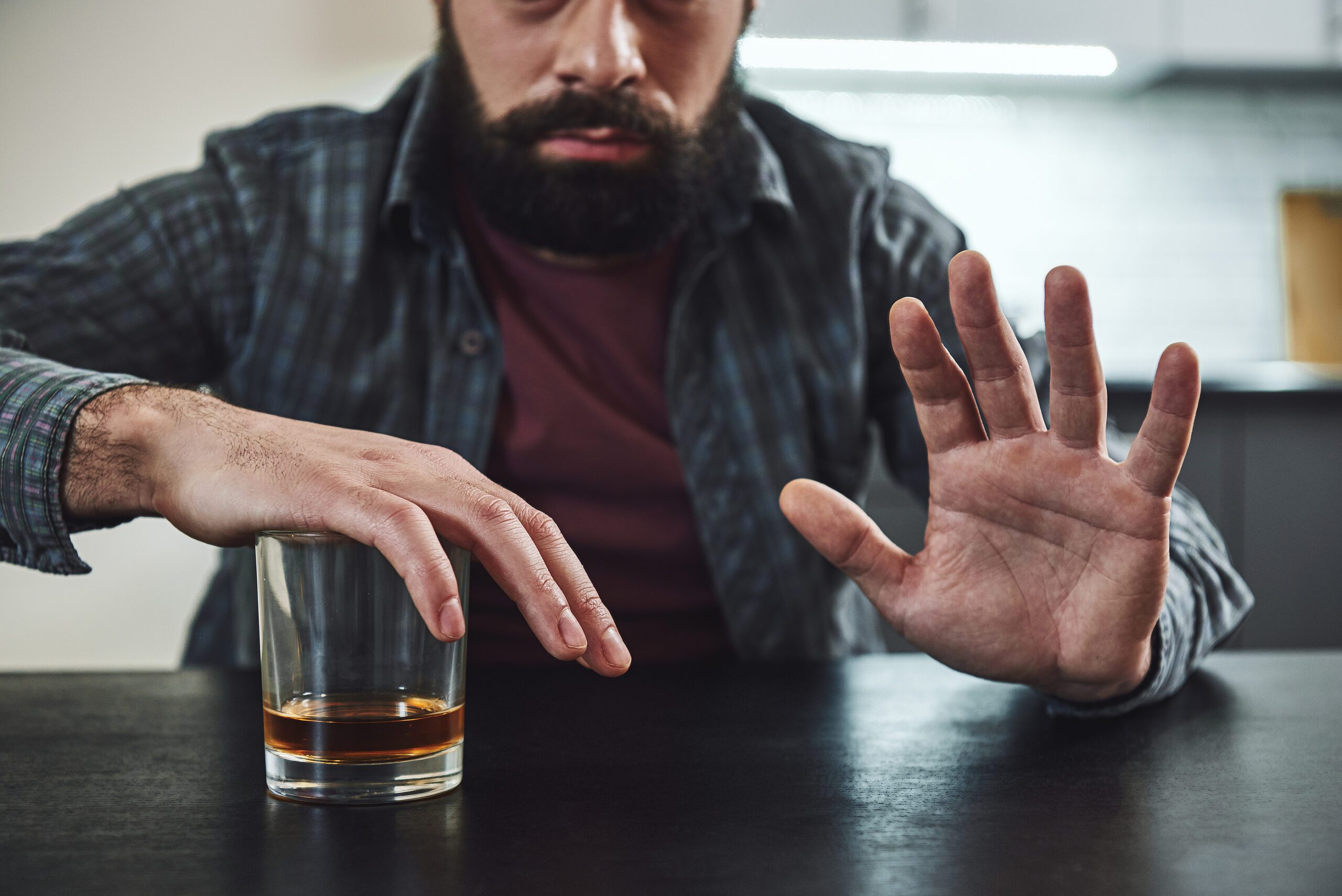Unearthing the Origins: The Story of Casey’s Law
Understanding the Catalyst for Legislative Action
The inception of Casey’s Law, a pivotal piece of legislature, stems from a profound need for structured intervention in addiction scenarios. This necessity arose amidst a backdrop where traditional avenues for addiction treatment were proving inadequate, compelling lawmakers to reevaluate existing addiction intervention laws. Such legislative changes are not born in isolation but are driven by compelling narratives, like that of Casey Wethington, that highlight glaring gaps within the system.
One key catalyst for this legal development was the overwhelming acknowledgment of the inadequacy of voluntary addiction treatment pathways. Families were profoundly frustrated, watching loved ones spiral deeper into addiction without comprehensive legal support for involuntary intervention. The law emerged as a response to these systemic flaws, emphasizing the need for a legislative framework capable of empowering families and saving lives.
Moreover, rising drug addiction rates across the country underscored the necessity of a mechanism like Casey’s Law. The glaring failure of existing policies to curb the epidemic acted as a catalyst, propelling the legal community to explore more effective frameworks and regulations. Understanding the true depth of the problem was crucial in shaping this meaningful legislative action.
Casey Wethington’s Story and Its Impact
Integral to Casey Wethington’s story and its impact is the tragic loss that served as the precipice for legal change. Casey, a young man battling addiction, became the face of this legislative movement, propelling his family into advocacy amid their unimaginable grief. His story is emblematic of countless others who have faced similar journeys, yet it uniquely galvanized legislative action due to the unyielding determination of his family.
His life and untimely death spotlighted the need for systemic change – a tangible example of the catastrophic consequences of insufficient intervention options. Casey’s narrative resonated deeply with communities nationwide, highlighting the inefficacy of existing support systems. His legacy was immortalized in the form of legislative transformation, serving as a beacon for other families who found themselves in similar struggles but lacked effective recourse.
Furthermore, Casey’s journey through addiction underscored the complex interplay between addiction and societal pressures, prompting a broader examination of how communities could better support those struggling. The collective empathy and outcry spawned by his story initiated a ripple effect, magnifying calls for immediate and robust legal solutions to address the addiction crisis.
The Legislative Process of Casey’s Law
The journey from personal tragedy to legislative enactment requires navigating a complex web of legal and political pathways. Casey’s Law demonstrates how impactful activism can culminate in substantive legal change. The legal process often begins with advocacy at the grassroots level and expands to involve stakeholders across the political spectrum who can champion the cause within legislative bodies.
Crucial to the law’s passage was the coalition of advocates, lawmakers, and affected families who together navigated the intricate legislative landscape. Their concerted efforts focused on illustrating the urgent need for a law that offered a structured approach to involuntary intervention in cases of severe addiction. This advocacy drew from poignant personal stories and robust data underscoring widespread systemic failures.
Ultimately, the legislative process demanded not only political will but also substantial public support, as awareness campaigns were critical in shifting public opinion in favor of the law. These efforts underscored the necessity for comprehensive involuntary commitment processes, similar to those employed in behavioral health laws on addiction, thereby ensuring that tragedies like Casey’s would catalyze change rather than persist unaddressed. By foregrounding empathy alongside evidence, Casey’s Law was able to transform the landscape of addiction legislative frameworks.
The Legal Landscape of Addiction Intervention
Deciphering Involuntary Civil Commitment
Involuntary civil commitment plays a crucial role in addiction intervention, serving as a potent legal mechanism for compelling treatment. This procedure involves legally mandating individuals to undergo treatment for substance abuse disorders when they’re unable to seek help voluntarily. The process aims to bridge the gap often left by voluntary treatments, offering a pathway for families and authorities to intervene when necessary.
Understanding the involuntary civil commitment process is pivotal for stakeholders, including family members who are desperate to see loved ones receive essential support. It requires a thorough grasp of the legal frameworks that permit compulsory treatment while safeguarding individual rights. Various states have distinct laws governing this process, reflecting local legal landscapes and societal norms regarding addiction treatment.
The intricacies of involuntary commitment highlight its importance in structural addiction intervention, showcasing how legal systems can prioritize treatment over punishment. These frameworks strive to balance individual liberties with the community’s safety concerns, ensuring those who have a severe addiction receive timely intervention and comprehensive care.
Analyzing Addiction Crisis Legislation
Addiction crisis legislation underpins strategic legal responses to the escalating substance use epidemic. These laws are crafted in response to rising addiction rates, aiming to fortify the capacity of legal systems to intervene effectively. They often encompass provisions for treatment funding, regulations for prescription medications, and pathways for involuntary treatment when warranted.
Critical analysis of such legislation reveals the multifaceted approach needed to address addiction, blending prevention, treatment, and rehabilitation. It’s crucial to scrutinize how these laws impact individuals and communities, aiming for improvements in public health outcomes. Effective legislation often emerges from collaborative efforts between local governments, healthcare providers, and advocacy groups.
By examining addiction crisis laws, stakeholders can assess whether existing frameworks are adequate or require reform. Continuous evaluation is essential to adapt to the evolving landscape of drug use and addiction, ensuring that legislative measures effectively mitigate the crisis. These insights are fundamental to formulating future legal strategies that support robust addiction management and recovery solutions.
Contrasting Casey’s Law with the Marchman Act
Comparing Casey’s Law and the Marchman Act illuminates distinct approaches within the spectrum of involuntary treatment laws. Casey’s Law, rooted in legislative advocacy from a personal tragedy, offers a model for mandating involuntary treatment in states like Kentucky. It allows families to petition the court for forced treatment of loved ones who refuse voluntary care.
In contrast, the Marchman Act is a Florida-specific statute enabling involuntary detoxification and assessment for individuals with substance abuse issues. This act, enforced within Florida’s jurisdiction, offers a structured legal process through civil procedures for assessing and addressing an individual’s addiction treatment needs.
Evaluating these laws underscores the varying state-specific frameworks and their respective successes and challenges. Both laws manifest a shared objective: facilitating crucial interventions for individuals in severe addiction crises. However, they operate within different judicial and social contexts, each with unique procedural nuances and legal implications.
Understanding these differences is instrumental in advocating for more effective addiction intervention strategies tailored to specific state contexts. By contrasting Casey’s Law with the Marchman Act, stakeholders can extract valuable lessons to inform policy refinements and bolster support mechanisms for families navigating addiction crises.
The Necessity of the Marchman Act in Florida
Why Florida Needs the Marchman Act
Florida, like many other states, grapples with a persistent substance use disorder crisis, necessitating robust legal frameworks for intervention. The necessity for the Marchman Act in Florida is underscored by its capacity to provide involuntary intervention, safeguarding individuals who cannot voluntarily pursue treatment. The law is particularly vital in regions with high addiction rates, functioning as a safety net for families. Floridians facing the challenge of a loved one’s addiction need options beyond voluntary treatment pathways, making the Marchman Act an essential tool in their arsenal.
Moreover, Florida’s geographic and demographic diversity compounds the complexity of the addiction issue, pressing for adaptable legal solutions. The state’s expansive tourism industry also contributes to fluctuating populations, increasing the demand for dynamic and scalable addiction intervention measures. Amid such challenges, the Marchman Act offers a critical framework enabling timely interventions, addressing the acute need for treatment solutions tailored to Florida’s unique landscape. The legal structure it provides empowers communities, ensures safety, and, importantly, guides individuals toward recovery.
Understanding Florida Civil Procedures for Treatment
The legal landscape in Florida is distinct, with comprehensive civil procedures designed to facilitate addiction treatment through the Marchman Act. Understanding these intricate procedures is key for effectuating successful interventions. The Marchman Act process encompasses various stages, from filing a petition to court-ordered assessments and treatments, necessitating precise adherence to legal protocols. Detailed comprehension of these procedures can markedly improve success rates in facilitating compulsory treatment, serving as a lifeline for those in crisis.
Florida’s civil procedures prioritize individual rights while addressing the urgent need for intervention. The courts operate with a dual focus on public safety and individual health, ensuring that interventions are not only legally binding but also compassionate and care-focused. By engaging with these procedures, stakeholders can advocate effectively within the legal system, navigating the complexities inherent in involving judicial mechanisms in personal health crises. The depth of the legal process reinforces the state’s commitment to balancing intervention with ethical considerations, a pivotal concern in addiction treatment scenarios.
Navigating the Intricacies of Florida’s Legal System
Navigating Florida’s legal system requires a nuanced understanding of its court procedures and statutory provisions, particularly concerning addiction treatment. The state’s legal infrastructure is designed to manage diverse cases, including involuntary treatment under the Marchman Act. Prospective petitioners must familiarize themselves with the varying requirements of local courts, from filing documentation to understanding procedural timelines and legal ramifications. Mastery of these intricacies is crucial for advocates and families seeking court-ordered addiction treatment solutions.
Florida’s legal landscape is supported by distinct regional jurisdictions, necessitating localized knowledge to utilize the Marchman Act effectively. Each district employs specific procedural nuances that can influence the outcome of intervention efforts. Legal professionals and intervention specialists must, therefore, remain vigilant and informed, continuously adapting to legal precedents and policy changes. By maintaining an acute awareness of legal practices and ensuring compliance with statutory obligations, stakeholders can harness Florida’s legal system as an ally in the fight against addiction.
This structured approach highlights the necessity of expertise in legal processes, underpinning the critical role legal frameworks play in safeguarding public health and welfare in Florida.
Executing a Successful Family Intervention
Family Support for Addiction Recovery
In executing a successful family intervention, understanding the profound role of family support in addiction recovery is pivotal. Family members are often the closest allies of those who have an addiction, wielding influence and initiating change. They must navigate complex emotional landscapes, providing support while avoiding enabling behaviors. Engaging in family therapy or support groups can empower family units, offering guidance on maintaining healthy boundaries and fostering a supportive environment. By reinforcing positive behaviors, families can significantly contribute to recovery, turning familial bonds into a robust support system for those battling addiction. Family support in addiction recovery is not only about providing emotional assistance but also about actively participating in the recovery process.
Additionally, education is key to understanding addiction’s roots and its impact. When families educate themselves on substance use disorders, they cultivate empathy and patience, essential traits for sustainable recovery support. Collaborative planning with treatment specialists can guide families in constructing an intervention plan tailored to their loved one’s unique needs. The structured involvement of family members can extend beyond initial treatment, providing a nurturing backdrop that encourages enduring recovery. As families advocate for their loved ones, their involvement can help demystify addiction and dismantle stigma, fostering an environment where recovery thrives.
Legal Intervention for Substance Abuse
The Florida legal system provides essential tools for addressing addiction through structured interventions. Legal measures, such as the Marchman Act, offer a strategic framework for enacting change when voluntary efforts fail. These legal pathways enable families to petition courts for mandatory treatment, ensuring timely intervention. Understanding the complexities of legal intervention for substance use is crucial for family members navigating this avenue. This legislative process balances individual rights with societal safety, offering a lifeline to those unable to make sound health decisions due to substance use.
Legal interventions require meticulous adherence to judicial protocols, demanding a comprehensive understanding of Florida’s civil procedures for involuntary treatment. Securing legal counsel familiar with addiction laws is paramount, as well as ensuring that petitions meet the necessary criteria and process requirements. The Marchman Act exemplifies how legislative frameworks can facilitate access to treatment, safeguarding individuals from the potentially fatal consequences of untreated addiction. Legal professionals and intervention specialists play critical roles in translating family concerns into actionable legal plans, ultimately enabling swift and effective intervention.
Effective Strategies in Involuntary Addiction Treatment
Implementing effective strategies in involuntary addiction treatment involves integrating compassionate care with legal authority. In Florida, the Marchman Act stands as a cornerstone of such interventions, showcasing how legislation can support families in crisis. Its efficacy hinges on structured approaches that prioritize timely, court-ordered assessments, propelling individuals toward mandatory treatment when other avenues have failed. Emphasizing a combination of medical and therapeutic interventions can enhance outcomes, providing a comprehensive treatment plan that addresses the multifaceted nature of addiction.
Families can leverage strategies for family intervention to create a conducive environment for recovery. This involves setting realistic expectations and maintaining open communication with treatment providers to ensure the intervention aligns with the individual’s specific needs. Consistency and perseverance in following through with treatment recommendations are paramount, as they strengthen the foundation for sustained recovery. Effective family interventions also consider post-treatment support, establishing a continuum of care that extends beyond initial recovery, thereby minimizing relapse risk and enhancing lifelong recovery prospects.
Envisioning a Future with Better Addiction Solutions
Legal Pathways for Treatment
Legal pathways for treatment are crucial in reshaping the addiction recovery landscape, providing structured frameworks that guide individuals toward recovery. These pathways, including the Marchman Act vs. Baker Act, highlight the importance of legal mechanisms that facilitate involuntary treatment when necessary. Such statutes empower families and legal stakeholders to intervene in cases where voluntary treatment fails, ensuring that individuals receive timely care.
Moreover, these legal frameworks emphasize balancing individual rights with communal health responsibilities, requiring meticulous judicial processes to prevent misuse. By engaging with these legal paths, families have a robust array of options to address addiction crises, ensuring decisions are made with empathy and foresight. Legal strategies must evolve continuously, reflecting societal changes and advancing addiction sciences, to offer updated, effective solutions.
Innovative Approaches to Addiction Recovery
Innovative approaches in addiction recovery are transforming how communities perceive and address addiction challenges. By leveraging technology and research in behavioral health, the field has greatly advanced in customizing treatment methodologies. These innovations include integrated care models that coordinate medical and therapeutic support, ensuring comprehensive recovery plans. The focus on personalized care allows for more adaptable and responsive treatment strategies.
Equally important are predictive analytics that assess relapse risks and intervention effectiveness, making treatment plans increasingly data-driven. Such innovations in the Florida context could include enhanced Florida addiction intervention methods, offering tailored solutions that consider local demographic needs. By combining technology with empathy-driven approaches, the recovery journey becomes more patient-centered, encouraging long-term sobriety.
Building a Supportive Environment: AA & NA Meetings
Building a supportive environment is integral to successful addiction recovery, with Alcoholics Anonymous (AA) and Narcotics Anonymous (NA) meetings playing pivotal roles. These gatherings provide crucial peer support, creating a safe space for individuals to share experiences and gain motivation. The encouragement from these communities aids in diminishing the stigma associated with addiction, fostering acceptance and understanding.
Incorporating family members in these networks enhances this supportive environment, enabling loved ones to better understand recovery dynamics. Educational workshops and open meetings can further involve families, strengthening their role in supporting recovery. Additionally, aligning these meetings with local resources like addiction treatment legalities ensures that individuals have access to comprehensive recovery support. Together, these supportive networks and legal frameworks streamline paths to sustained recovery, nurturing environments where healing and personal growth are prioritized.
Reflective Closing: Lessons Learned and Moving Forward
The Convergence of Legal Frameworks and Empathy
The tragic narratives like that of Casey Wethington shed light on the urgent need to merge legal frameworks with empathetic approaches in addiction intervention. Casey’s Law and the Florida Marchman Act exemplify how legislation can be a catalyst for compassionate treatment. These laws underscore a critical balance- utilizing legal authority to enforce necessary intervention while respecting individual dignity and agency. By incorporating empathy, these frameworks empower families and facilitate recovery paths that address not only the legal but also the personal dimensions of addiction. This convergence serves as a template for future policies, ensuring that the justice system holistically supports those in need.
The Role of Society in Shaping Future Legislation
Society plays an instrumental role in influencing and shaping future legislation concerning addiction treatment. Public opinion and community advocacy drive legislative changes, as seen in the advocacy for Casey’s Law. As awareness grows, so does the accountability of lawmakers to craft laws that genuinely reflect the pressing issues faced by society. Societal influence on substance abuse legislation insights fosters laws more attuned to the realities of addiction. Community involvement ensures that reforms are grounded in real-world experiences, enhancing the efficacy of laws like the Marchman Act and shaping a legislative landscape that prioritizes recovery and empowerment.
Integrating Family Voices into Legal Processes
Integrating family voices into the legal processes is fundamental to the efficacy of involuntary rehab treatment solutions. Families provide essential perspectives and insights that can guide the legal system in developing compassionate, effective interventions. Empowering families to participate actively in court proceedings ensures that the nuances of each case are considered, making legal interventions more targeted and humane. This integration not only strengthens legislative responses but also fortifies family units, fostering environments where recovery can thrive. By valuing family input, the legal system can adapt mechanisms that better serve individuals struggling with addiction, facilitating more nuanced and supportive frameworks for overcoming addiction challenges.
Frequently Asked Questions
Question: How does the content of the blog ‘How The Tragic Story Behind Casey’s Law Illustrates The Need For The Marchman Act’ align with the services provided by Marchman Act Addiction Treatment?
Answer: The blog elucidates the need for legal frameworks like Casey’s Law and the Marchman Act, highlighting their pivotal roles in facilitating involuntary addiction treatment. At Marchman Act Addiction Treatment, we specialize in leveraging the Marchman Act to support families and individuals in Florida who need legal solutions for addiction intervention. Our experienced team guides clients through the intricate Florida civil procedures, ensuring that their loved ones receive the timely treatment essential for recovery. By aligning with the insights from the blog, we emphasize our commitment to offering compassionate, legally sound pathways for those struggling with addiction, echoing the legislative spirit underscored by Casey’s Law.
Question: What are some effective family intervention strategies that the Marchman Act Addiction Treatment recommends?
Answer: At Marchman Act Addiction Treatment, we understand that family support is integral to successful addiction recovery, similar to how family roles are highlighted in Casey’s Wethington story. We advocate for structured family interventions complemented by legal tools like the Marchman Act. Families are encouraged to engage in therapy and education to comprehend addiction’s complexities fully. These strategies include setting healthy boundaries, supporting involvement in AA and NA meetings, and planning interventions with professional guidance. By combining these methods with court-ordered addiction care through the Marchman Act, families can effectively support their loved ones and navigate the recovery process with empathy and understanding.
Question: Can you explain the role of involuntary civil commitment in addiction treatment and how Marchman Act Addiction Treatment facilitates this process?
Answer: Involuntary civil commitment is a critical component of addiction intervention, providing a legal framework for mandating treatment when voluntary efforts fail, as detailed in the blog. At Marchman Act Addiction Treatment, we help families utilize the Marchman Act, which allows them to petition courts for compulsory addiction treatment. This legal pathway ensures that individuals who cannot seek help independently receive the care they need. We assist clients in navigating Florida’s legal system, from filing a petition to ensuring proper court compliance. Our expertise ensures that the process respects individual rights while prioritizing community safety, reflecting the crucial balance found within behavioral health laws.
Question: What insights from Casey Wethington’s story can be applied to the Marchman Act process in Florida?
Answer: Casey Wethington’s tragic tale exemplifies the necessity of structured legal interventions for addiction, mirroring the essence of the Marchman Act in Florida. His story advocates for involuntary treatment laws that enable families to intervene effectively. At Marchman Act Addiction Treatment, we emphasize these insights by providing robust legal support for petitioning the Marchman Act, ensuring that families have the tools to prevent the kind of tragedy experienced by Casey’s family. Understanding the importance of proactive legal action and empathetic family involvement is central to our approach, reinforcing the Marchman Act’s role as a protective measure against addiction-related catastrophes.
Question: How does the Marchman Act Addiction Treatment address the challenges of navigating Florida’s legal system for addiction intervention?
Answer: Addressing the complexities of Florida’s legal system is essential for successful addiction interventions under the Marchman Act. Marchman Act Addiction Treatment offers comprehensive support to families by guiding them through each procedural step, from petition filing to court assessments. Our team brings localized knowledge and experience, which are crucial in navigating the intricacies of Florida’s court jurisdictions. We ensure that legal pathways lead to effective treatment, balancing legal intervention for substance abuse with empathy and personalized care plans by utilizing resources such as substance abuse programs. Our commitment to understanding these challenges and providing precise guidance empowers families to secure necessary treatment interventions confidently.




















